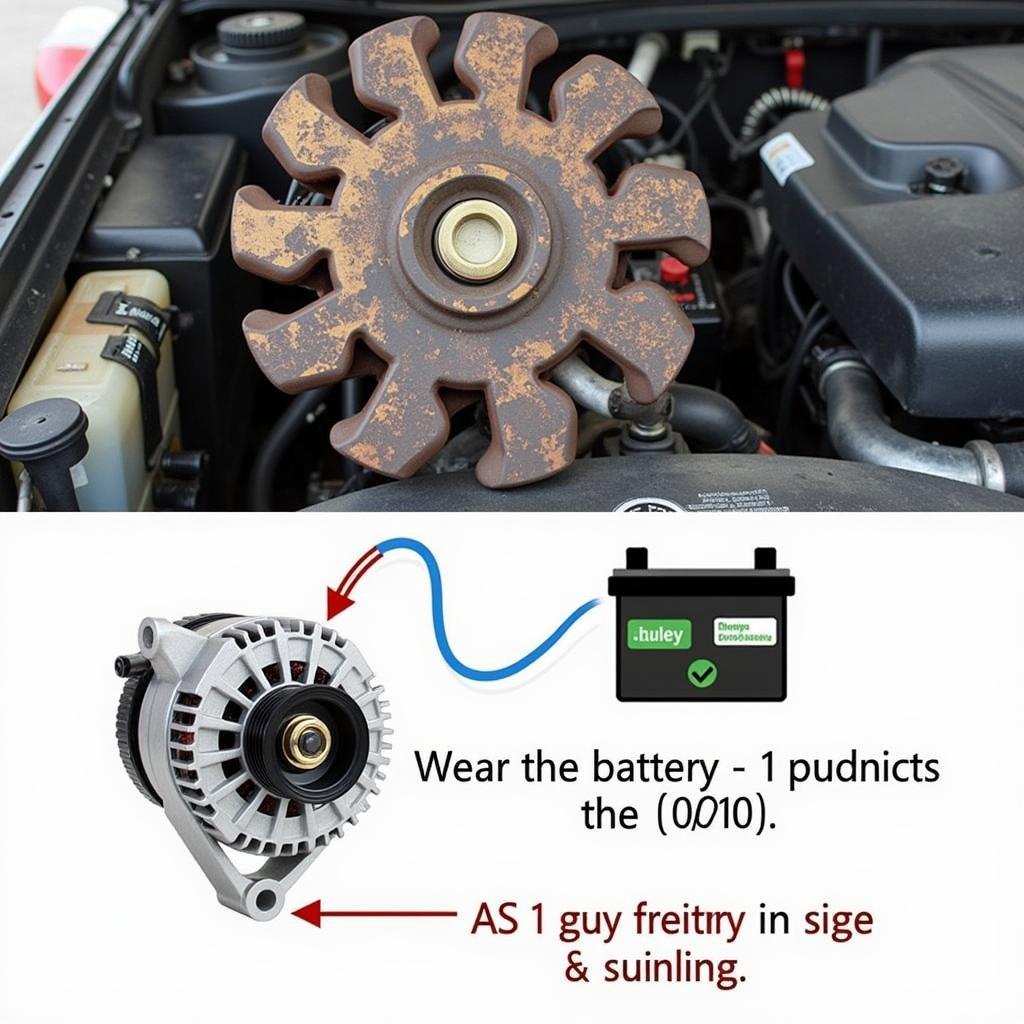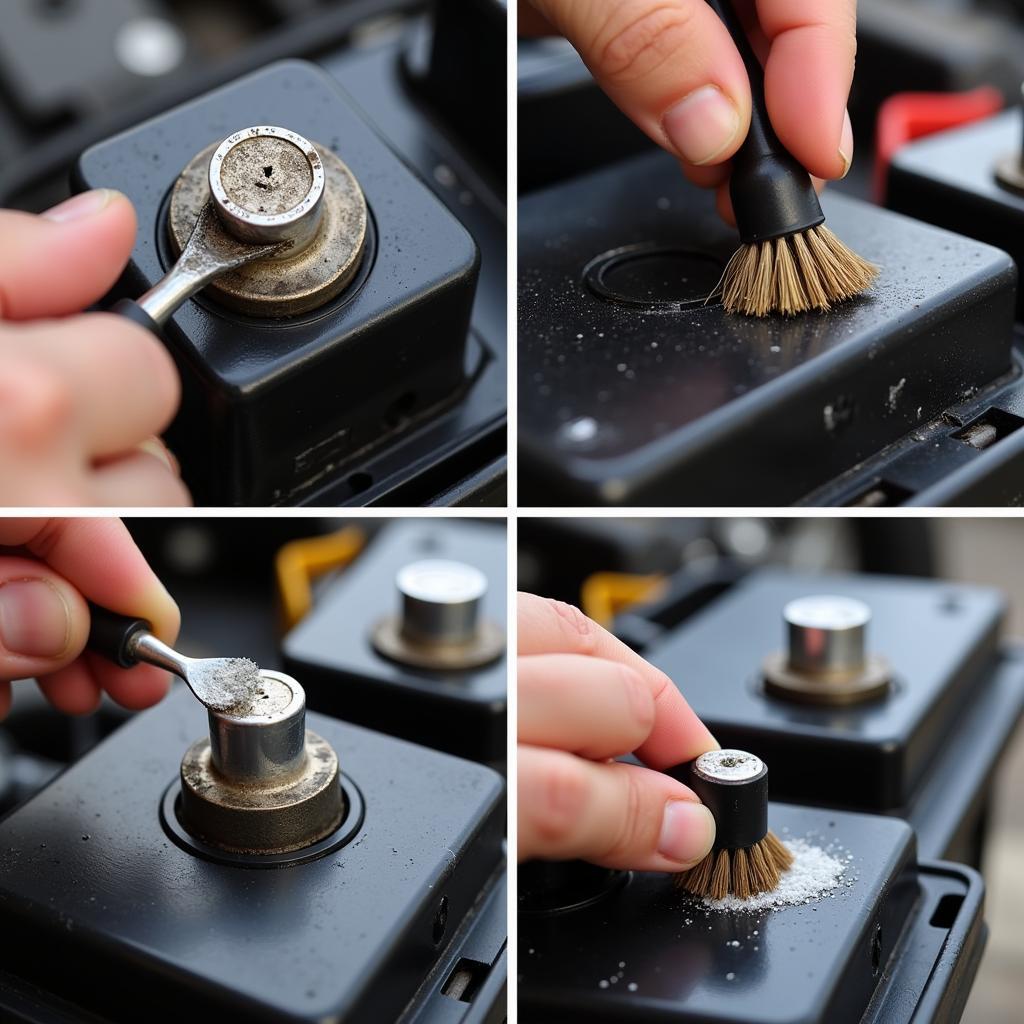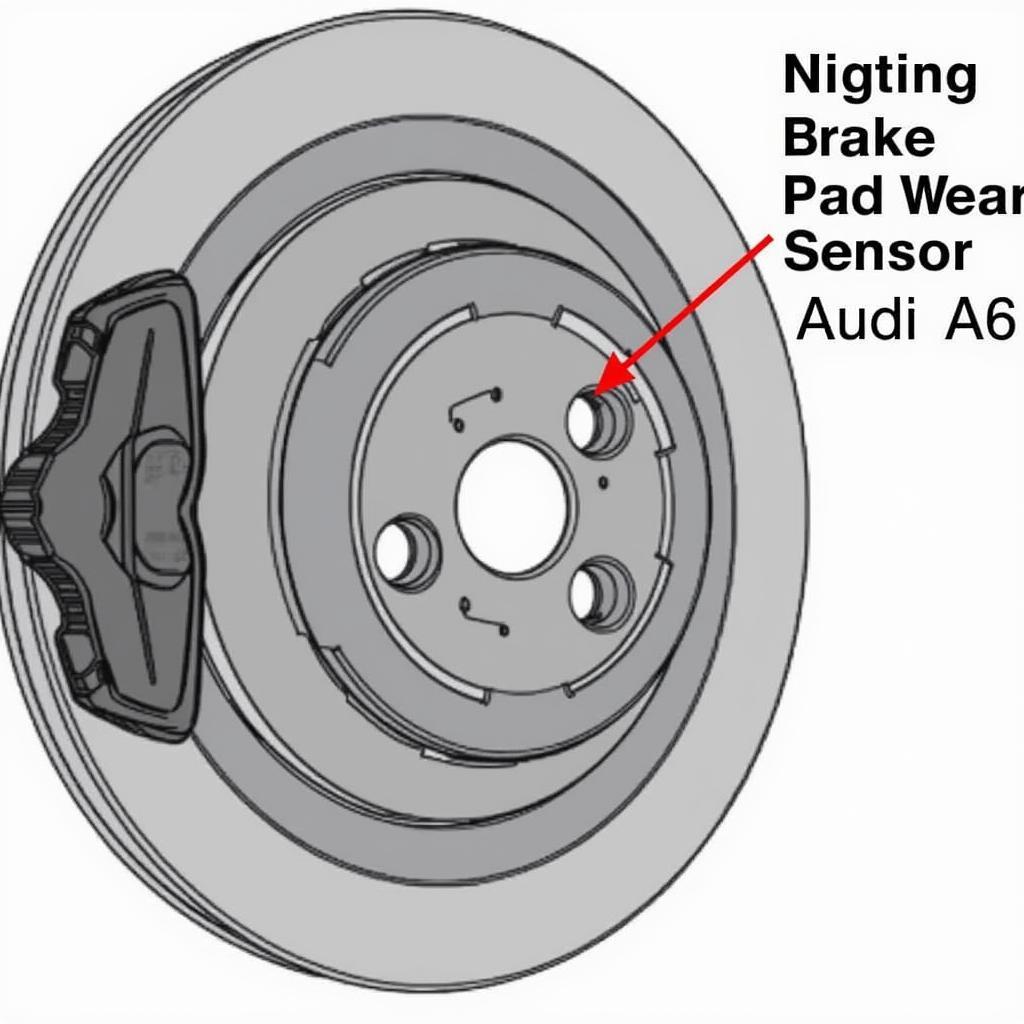Your car battery died while driving? This can be a startling and frustrating experience. Understanding why this happens and knowing what to do can save you a lot of hassle and potentially dangerous situations on the road. This article will explore the common causes, offer solutions, and guide you on preventing this issue in the future. We’ll cover everything from alternator problems to parasitic draws, and even discuss what to do if your battery in key fob dies.
Why Did My Car Battery Die While Driving?
A dead battery while driving usually indicates a problem beyond a simply old or weak battery. While a failing battery might struggle to start your car, it’s rare for it to die completely while the engine is running. The most likely culprit is a malfunctioning charging system, primarily the alternator. Other potential causes include a bad battery terminal connection, a parasitic drain on the battery, or even extreme temperatures. If you’ve experienced all dash lights came on and car died, it could be related to these same issues.
The Alternator’s Role
The alternator is responsible for recharging the battery while the engine is running. It generates electricity to power the car’s electrical systems and replenish the battery’s charge. A failing alternator won’t effectively charge the battery, leading to a gradual depletion of power and eventually a dead battery while driving.
Other Potential Culprits
Beyond the alternator, several other factors can contribute to a car battery dying while driving. Loose or corroded battery terminals can disrupt the flow of electricity, preventing the alternator from charging the battery. A parasitic draw, where an electrical component continues to draw power even when the car is off, can also drain the battery over time. Lastly, extreme temperatures, both hot and cold, can negatively impact battery performance and lifespan, as explored in the article on a car battery dead from cold.
 Alternator Failure Leading to Dead Battery While Driving
Alternator Failure Leading to Dead Battery While Driving
What to Do When Your Car Battery Dies While Driving
If your car battery dies while driving, the first thing to do is to remain calm. Try to pull over to a safe location away from traffic. Once you’re safely stopped, try to jump-start the car. If the car starts, drive directly to a mechanic to diagnose the problem. Don’t turn off the engine, as you might not be able to restart it. Knowing how to start a car without key fob can also be helpful in emergencies.
Diagnosing the Problem
A mechanic can perform tests to determine the root cause of the issue. This typically involves testing the alternator, battery, and checking for parasitic draws. They’ll likely check the battery terminals and cables for corrosion or damage as well.
Preventing a Dead Battery While Driving
Regular car maintenance is key to preventing a dead battery while driving. Have your battery and charging system inspected regularly, especially as the battery ages. Ensure the battery terminals are clean and tight. Address any electrical issues promptly to avoid potential parasitic draws. Staying proactive can prevent unexpected breakdowns and ensure a safe and reliable driving experience. This is especially important for electric vehicles, as discussed in the article about a Kona electric 12v battery dead.
Battery Maintenance Tips
- Have your battery tested annually, especially if it’s more than three years old.
- Clean battery terminals regularly with a baking soda and water solution.
- Ensure battery cables are securely attached.
- Minimize short trips, as they don’t allow the alternator enough time to fully recharge the battery.
 Cleaning Car Battery Terminals for Prevention
Cleaning Car Battery Terminals for Prevention
Conclusion
Experiencing a car battery dying while driving can be alarming, but understanding the causes and taking preventative measures can mitigate this risk. Regular maintenance, prompt attention to electrical issues, and awareness of the signs of a failing alternator or battery are crucial for a safe and reliable driving experience. Don’t wait until your car leaves you stranded on the road; prioritize car battery maintenance today.

